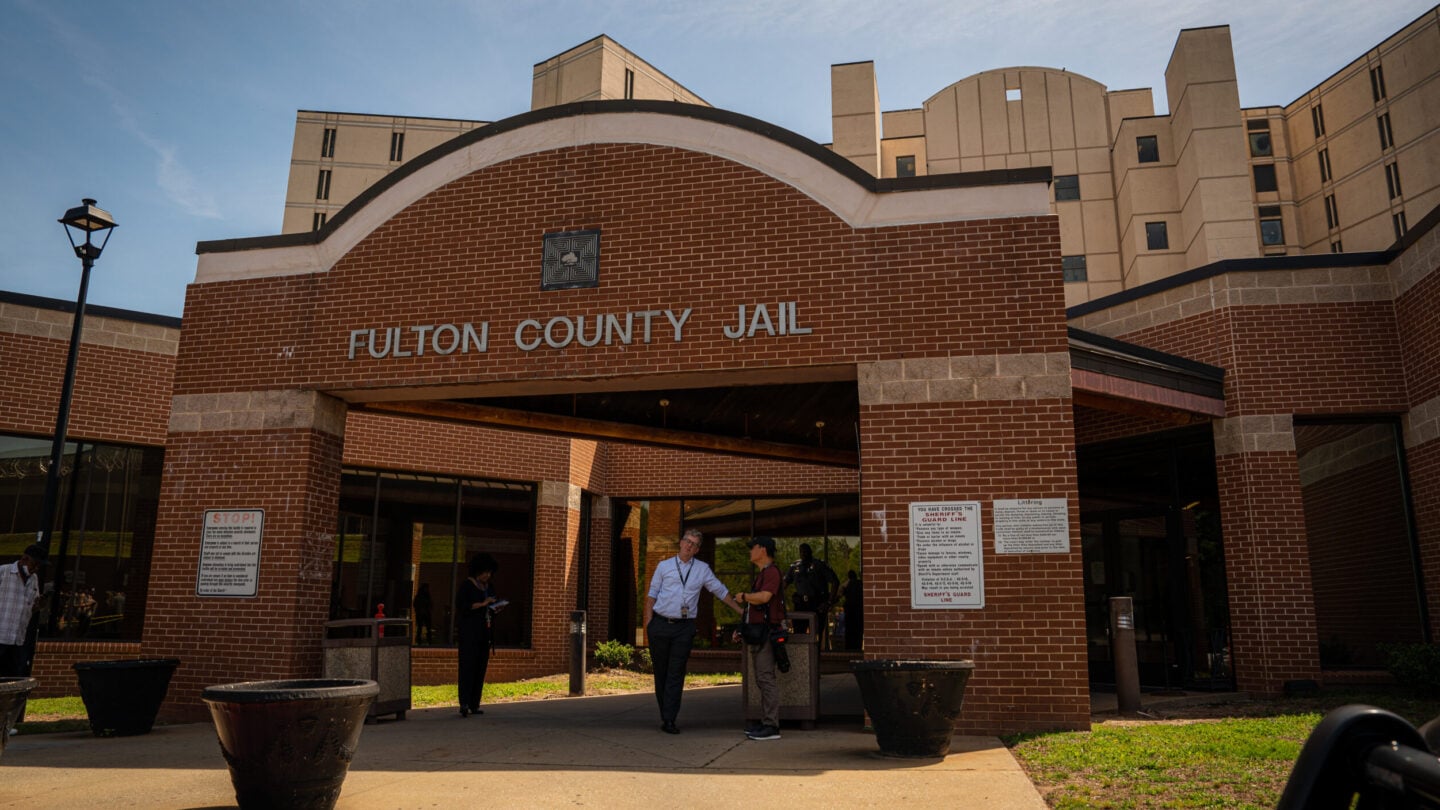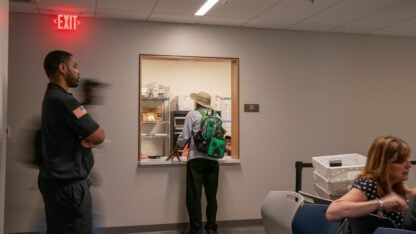The sheriff in a Georgia county where prison conditions have led to a federal civil rights investigation criticized a decision not to move forward with plans for a new jail, calling the vote “shortsighted” on Friday.
The Fulton County Board of Commissioners on Wednesday voted 4-3 to approve a request for proposals to assess jail facilities, recommend renovations and provide an estimate for a future special purpose building. The U.S. Department of Justice opened a civil rights investigation last year over longstanding problems with jail conditions in the county.
“This project is really putting a Band-Aid on open-heart surgery,” Sheriff Pat Labat, who has pushed aggressively for a new jail, told reporters Friday.
County commissioners in May voted to end a search for a project manager to oversee the building of a new jail at an estimated cost of $1.7 billion, news outlets reported. State legislators had said they wouldn’t allow a new local sales tax to fund the project and commissioners were unwilling to increase property tax rates.
The maximum allowable budget for the new project is $300 million.
Labat has long complained about dangerous conditions at the jail, including overcrowding, crumbling infrastructure and critical staffing shortages. He maintains that the only solution is to build a new jail that is more in line with modern corrections practices. In addition to being a safer and more humane jail it would also be more cost effective, the sheriff said.
“The county is responsible for the maintenance of this facility while we oversee it,” Labat said. “Ultimately, the county funds the actual maintenance and what it looks like is $300,000 a month. We’ve had since May of last year nearly 15,000 work orders just for this building alone. The building, the infrastructure itself is out of date.”
Commissioner Marvin Arrington Jr. could not support the new jail plan, he said during Wednesday’s meeting.
“I believe we need a new facility,” he said. “The facility is crumbling apart, and I believe this is the wrong direction.”
Commissioner Khadijah Abdur-Rahman said she had been one of the biggest proponents of a new jail but that the reality had sunk in that “we do not have public support” for it, she said. She did vote for the renovation plan.
“To do nothing is to continue to tell the public that we will not make the hard decisions when we need to make them,” she said.
Some commissioners said they are working under uncertainty since the Department of Justice has yet to issue any findings from its investigation.
When the Justice Department began investigating, it cited violence, filthy conditions and the September 2022 death of Lashawn Thompson, one of dozens of people who has died in county custody during the past few years. Thompson, 35, died in a bedbug-infested cell in the jail’s psychiatric wing.
Last August, former President Donald Trump went to the Fulton County Jail to be booked and to sit for the first-ever mug shot of a former president after he was indicted on charges related to efforts to overturn his 2020 election loss in Georgia.
Civil rights groups and advocates for people held in jails and prisons applauded the county’s new direction on the jail.
“We’re elated to hear the news that the $2B jail will be scrapped. This was a long fight with local advocates demanding their voices to be heard,” said Michael Collins, senior policy director at Color of Change. “For far too long, those in power have disregarded the will of the people. Today, that has been rectified.”
The American Civil Liberties Union of Georgia also applauded the decision.
“We reiterate that the wholesale warehousing of people pre-trial is expensive and does not make our communities safer,” executive director Andrea Young said. “There are better solutions and we will continue to advocate for more effective approaches to safe communities.”









